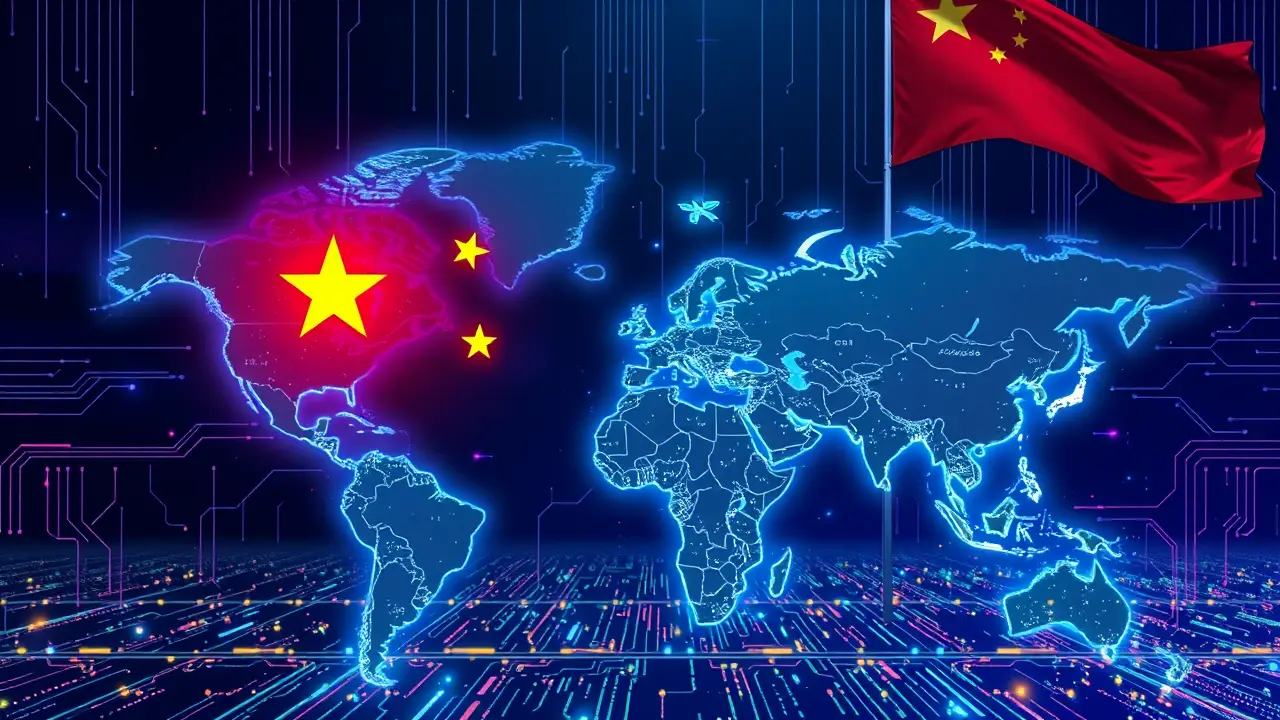China Sanctions US Firms Over Trade and Defense Issues
In a calculated geopolitical maneuver that echoes the tit-for-tat dynamics of a modern-day cold war, Beijing has unsheathed its regulatory sword, imposing sanctions on a slew of Western entities entrenched in the defense sector and a pivotal semiconductor data analysis provider. This latest salvo is not an isolated skirmish but the latest volley in a protracted trade and technological conflict with the United States, a confrontation that increasingly resembles the grand strategic plays of historical superpower rivalries.The targeted firms, whose identities were broadcast by Chinese state media as a public reprimand, find themselves frozen out of the world's second-largest economy, a punitive measure that strikes at the heart of their global supply chains and market access. This action serves as a direct counterpunch to Washington's own escalating restrictions on advanced technology exports to China, particularly those targeting the semiconductor industry, which the U.S. views as a critical national security frontier.The inclusion of a leading chip data provider is particularly telling, revealing a battle that is as much about information dominance as it is about physical hardware; by restricting access to the vital market intelligence and technical specifications that grease the wheels of global commerce, Beijing aims to blunt the effectiveness of American export controls and foster technological self-reliance. This strategy, often termed 'dual circulation,' is a cornerstone of President Xi Jinping's vision for a China less vulnerable to external coercion, a modern iteration of the import-substitution industrialization policies seen in various forms throughout 20th-century history.The defense sector sanctions, meanwhile, follow a familiar pattern of leveraging economic might to achieve political ends, a tactic employed by great powers for centuries, though now with the added complexity of deeply intertwined global capital. Analysts from the Council on Foreign Relations suggest that these measures are less about inflicting immediate financial damage—though that is a welcome byproduct for Beijing—and more about signaling resolve to both domestic and international audiences.For a Chinese populace weaned on narratives of national rejuvenation, such firmness against perceived American containment bolsters patriotic sentiment and regime legitimacy. For allies and partners watching from the sidelines, particularly in Europe and Southeast Asia, it is a stark reminder of the economic costs of aligning too closely with U.S. strategic priorities, potentially causing hesitation in forming tighter technological alliances like the Chip 4.The long-term consequences are profound, accelerating the bifurcation of the global tech ecosystem into distinct American and Chinese spheres of influence, a digital iron curtain that could stifle innovation and increase costs for consumers worldwide. Furthermore, this move is inextricably linked to other simmering disputes, including China's assertion that foreigners are leveraging its rare earth exports, a domain where it holds near-monopolistic control over processing, much as OPEC once held sway over oil.By weaponizing its dominance in critical minerals, Beijing adds another layer of strategic depth to its economic statecraft, creating a multi-front challenge for Western policymakers who must now balance deterrence with the pragmatic need for cooperation on transnational issues like climate change and nuclear non-proliferation. The situation demands a nuanced, Churchillian appreciation for the long game; we are witnessing not a mere trade dispute, but a fundamental recalibration of the international order, where sanctions are the artillery and data is the new high ground.
It’s quiet here...Start the conversation by leaving the first comment.
© 2025 Outpoll Service LTD. All rights reserved.
